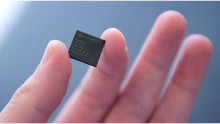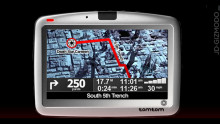IBM materials breakthrough could lead to human brain-like chips
IBM researchers have discovered a materials breakthrough that could lead to processors that use less power and operate the way a human brain does.
Silicon-based processors rely on electronics and voltage being ushered through a channel. These semiconductors, which power PCs, tablets and smartphones today, were thought under Moore's Law to double performance every two years with lower costs and size. However, new manufacturing techniques will be needed as Moore's Law hits physical limits.













































































